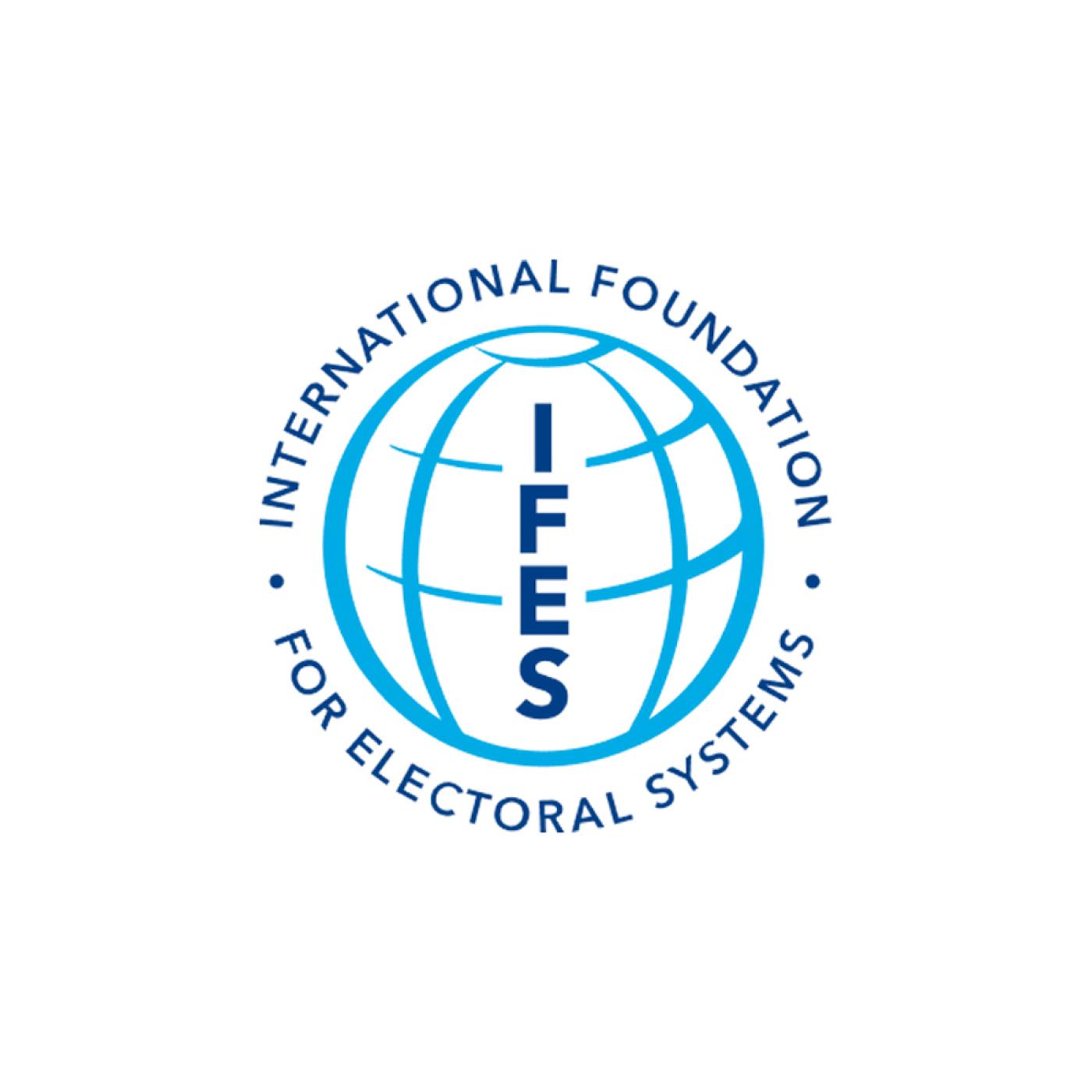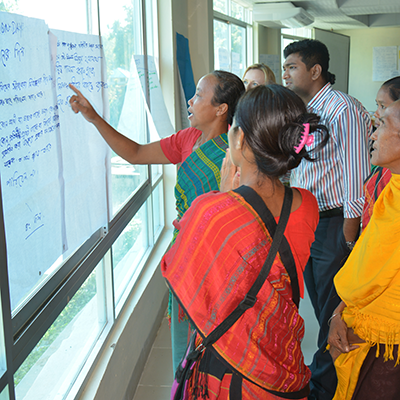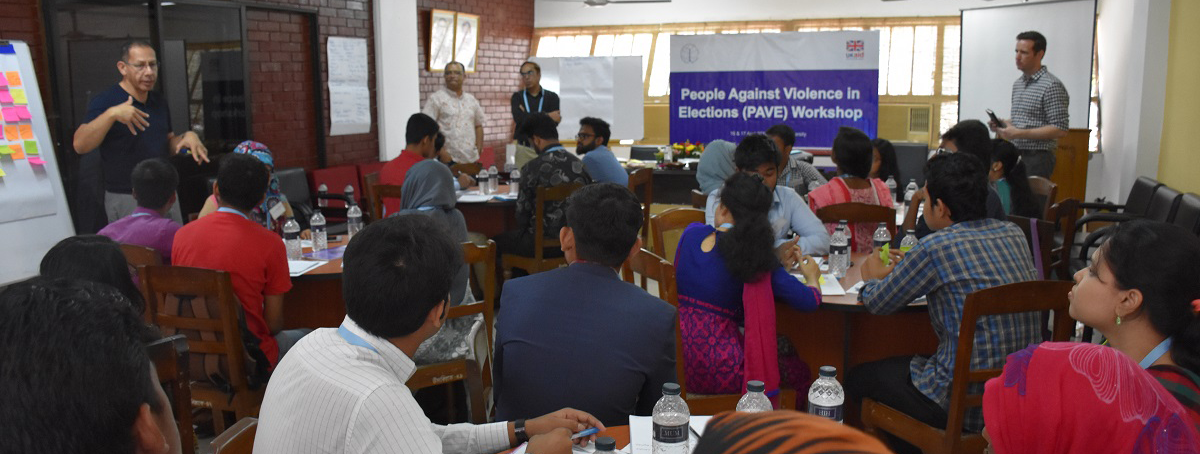"People Against Violence Everywhere" Program (PAVE)

"People Against Violence Everywhere" (PAVE) is an International Foundation for Electoral Systems (IFES) election security initiative that provides local leaders and influencers with the tools and skills needed to anticipate, mitigate and prevent violence around elections through peace-building activities. The program is designed to help participants better understand the root causes of violence, how violence hinders free and fair participation in democratic processes, and what individuals and organizations can do to help reduce violence. Participants learn how societies can manage conflict through democratic governance without resorting to violence. Through experimental, hands-on training, the PAVE program teaches participants to link newly-acquired conflict and elections management skills with opportunities for dialogue and avenues for civic advocacy.
The PAVE program consists of a series of modules that provide participants with knowledge and skills that better enable them to speak out against violence in their communities.
PAVE training participants
- PAVE Introductory Training [Knowledge]: A core module designed to help participants identify the root causes of violence, learn how to deal with conflict in society through non-violent electoral processes, foster dialogue between opposing groups, and link these efforts with tangible initiatives to mitigate electoral and political violence.
- PAVE Engage [Skills]: A module that equips core PAVE alumni to reach beyond their current spheres of influence by further building their mobilization and peace-building skills.
- PAVE Lead [Leadership]: A personal leadership development course that provides training on effective leadership, inspires current leaders to act ethically with courage and conviction, and encourages participants to take on leadership roles.
- PAVE Harmony [Community Outreach Workshop]: A community-based workshop module that focuses on the key principles of dignity, security and diversity and is designed to encourage participants to take personal responsibility for coexistence, tolerance, and constructive political engagement in their community and country.
“Previously we did not like to even see the faces of our opponents. There was an extreme level of rivalry among party activists, especially among the ascending student leaders... In our small country, this [PAVE] training is furthering an ideology of peaceful coexistence, political ideals, values and sacrifice, [and] is certainly playing a vital role in the development of our nation.” – PAVE trainee and Bangladesh Nationalist Party member
Practical action is emphasized as program alumni are supported in forming a collective peace-building group to support each other in their efforts to increase harmony, coexistence, and civic engagement in their communities and beyond. The most active and influential members of the group are elected to serve as “peace ambassadors,” who form a network of leaders advocating for peaceful political processes in their country.
“This training is a timely initiative. We all are tired of violent politics and we need to stop this. This training will help us a lot in establishing peace in our locality... We need a critical mass prepared to work for peace.” – Sk. A Wahed Maruf, Mathureshpur Union Council, Bangladesh
To date, IFES has trained more than 4,000 people across Bangladesh, including local leaders, political party members, community, religious and traditional leaders, civil society and youth activists, leading female change-makers, and members from marginalized groups. As a result of these trainings, participants have reported conducting more than 430 peace-building initiatives, including community interventions such as peace rallies, distribution of public awareness materials and roundtables involving members and supporters of competing political parties, which have reached more than 60,000 individuals across the country. Almost all (97 percent) peace ambassadors and PAVE training alumni say they have taken part in informal initiatives after the training to promote peaceful political engagement with friends, family members and other members of their communities. Additionally, 89 percent say that, as a result of their involvement in PAVE, they have played a role in other forms of dispute resolution in their communities. Plans are underway to implement PAVE in other countries.
The development of the PAVE program has been supported by the United States Agency for International Development and the United Kingdom’s Department for International Development. The PAVE Harmony module was co-created by IFES and The Hunger Project – Bangladesh.







